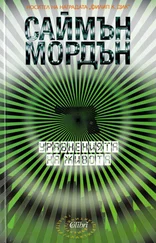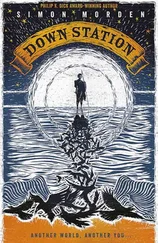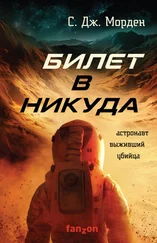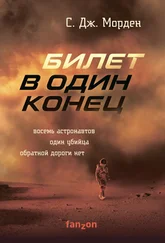“Hey Josh. ’S’up?”
Meldon put the phone back down on the corner of his workstation. His brother didn’t sound like a man monitoring the end of everything.
“Jerry, listen very carefully to me. Have you detected any nuclear weapons detonations in the continental United States?”
“What’s going on, Josh? Are you in some kind of trouble?”
“Just answer the question: yes or no?”
“No! I mean, really no.”
“Or anywhere else?”
“Haven’t you seen the news? Of course you have. Why are you asking me this stuff?”
Meldon screwed his eyes tight shut. “Jerry, what was the name of the first girl you kissed?”
“I… don’t get it.”
Swallowing hard, Meldon tried again. “Third grade. Who did you kiss in third grade?”
“You said you’d never…”
“You don’t know how important this is, Jerry. I need to make sure that it’s you I’m talking to. I’ve got what’s left of the National Security Council staring at me, including the president. Which girl did you kiss in third grade? I caught you and you made me swear I’d never tell, on our mother’s life.”
The missiles were very close to Colorado now. By the rules of the game, if they hit, the connection would disappear.
“Jerry. Which girl?”
“You know damn well it wasn’t a g—”
Meldon cut him off. “Mister President. The United States Geological Survey has not detected a single detonation anywhere within the world, except for the one we caused.”
The two markers converged on NORAD. It winked out.
“Have we launched?” Arendt walked slowly around the table to Meldon’s workstation. He picked up the phone. “Petrovitch, have we launched?”
“Why don’t you put me on the speakers, Admiral?”
“You don’t need me to put you on the speakers, do you? You never have. You’re as good as in this room with us.”
The main screens flickered. The screen changed to inside a rusting container. Faces looked back at them. A teenage girl; two young women, one very tall with a bandaged cut on her partly shaved head, the other a pale and drawn blue-eyed redhead who stared belligerently and raised her middle finger to the camera; it panned over another woman, high cheekboned and disdainful, then they were out in the daylight. There were more containers, strewn seemingly at random, and as the camera wobbled and bounced along in time with the gait of the carrier, the watchers could see compacted brown clay and cloud-laden sky.
“This city has been my home for the last few years. The London Metrozone took me in and sheltered me after I’d run from all the bad things I’d done. I became anonymous here: easy enough to do. Then it got a bit, well, screwed up. Firstly, the New Machine Jihad: a burgeoning AI’s subconscious dreams played out across reality. That, and your CIA, put a hole in the cordon. The Outies came through. It was a trickle at first, then it was a flood. We ended up having a war, and we only just won. Now we have this: lies and subterfuge, more death and destruction, and you’ve finally done what the Armageddonists failed to do: put a nuclear bomb in the heart of London.”
He was at the gates of Regent’s Park, looking up at the sniper’s vantage point, showing them first-hand how damaged it was. “The strange thing is that each time I was no more than lucky. I was able to get in the way, just enough to make a difference. But I’m not doing that again: I’m done here. I’m tired. I’m going to disappear off your radar—hopefully permanently—and this time I’m going to leave this mess for you to clear up. And let’s face it, it is your mess.”
Petrovitch kept walking. There were few people still around: most of them had moved north away from ground zero. The street was littered with red flags, reminding him of that brief moment of euphoria, where change had not just seemed possible but inevitable.
“So I’ve got another of your CIA agents—I’m not talking about Tabletop, she’s one of us now—and I want to send him back to you. Even if I get nothing in return, he’s more trouble than he’s worth. A goodwill gesture, though, part of your reparations, might lead you to stick Epiphany Ekanobi and Paul Dalton on a plane to Europe. That’ll also mean you’ll have to enforce your own laws over in California a bit more rigorously than you are at the moment. Throw in the Anarchy kid, too, while you’re at it. That and stopping trying to kill me and my friends, we can call it quits.”
Mackensie cleared his throat. “You are in possession of the gold codes?”
“Yeah. It’s not like you weren’t warned. Repeatedly. Everyone else in the room had worked it out. But not you.”
“And what do you intend to do next?”
“I gave you three options: killing billions, losing your bank balances, or holding your nerve and doing precisely nothing. There were two right answers, but no, you went ahead and picked the other one. You’d have destroyed the world, you mad fuck.” Petrovitch snorted. “No, you haven’t launched, and it’s not something I would ever do. So there’s no real harm done. No one’s died in a global nuclear holocaust. We can all breathe out again and promise to do better next time. Except for you. Something tells me, even though they changed the constitution to allow you to stand for more than two terms, even though each time you’ve been up for election your majority has grown and your approval rating just keeps getting better—you’re not going to make it out of the Situation Room still being president.”
Petrovitch kept walking, and turned his good eye to the skyline, where smoke and dust hung in a low pall. There was masonry to navigate, and cracks in the road. Pools of water and piles of glass.
“You showed everyone who you really are today, Mackensie. Not the great president, the architect of Reconstruction and protector of the American people. It turns out that you’re really an insane old man with an Armageddon fetish who’d rather nuke the planet than admit you were wrong—and I’ve got it all on file. If you think these streets look bad, this city: it can be rebuilt, which is more than can be said for your reputation. I had a very illuminating chat with Paul Dalton a couple of days ago, who told me of Reconstruction’s dark heart; that if you looked like you were out of step with the project, different in some way, maybe even just weak, it would turn on you and tear you apart without hesitation or mercy. That’s what’s going to happen to you, and I’m going to enjoy watching it played out. Look at the faces around you. Look at them closely. They’re your executioners, not me. Goodbye Mackensie.”
There was more to do, but Petrovitch was content to let others do it. Once he’d matched jobs to people, he saw no reason to fret about their competence. He’d done enough for one day—enough, it felt, for a lifetime—and it was true what he’d told Mackensie; he was tired.
He’d talked to presidents and prime ministers, he’d talked to ambassadors and representatives. He’d had a very poignant conversation with the Secretary General of the United Nations, who inexplicably reminded him of his mother, and he’d choked up completely.
His mother: now that was a situation he was probably going to have to deal with at some point. Just not yet.
A mere cardinal of the Roman Catholic Church didn’t really rank at all compared with the rest of the great and the good. Still, there he was, sitting on the steps of a bizarre Italianate building that had somehow squeezed itself between a town house and a pizza restaurant, sadly closed for the duration.
Carillo had found an unbroken bottle of bourbon in the wreckage of the Mount Street church and had brought it out to share. He lowered himself onto the cold marble and arranged two glasses on the step next to him.
Читать дальше

![Саймон Морден - Билет в никуда [litres]](/books/388091/sajmon-morden-bilet-v-nikuda-litres-thumb.webp)
![Саймон Морден - Билет в один конец [litres]](/books/395533/sajmon-morden-bilet-v-odin-konec-litres-thumb.webp)









